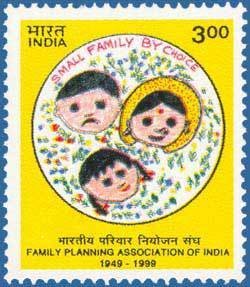
Avabai Wadia
‐
Barrister, suffragist and leading member of the family planning movement in India who was educated as a schoolgirl in London
Other names
Avabai Mehta
Place of birth
Date of arrival to Britain
Place of death
India
Date of time spent in Britain
1928–38
About
Of an elite Parsee background, and born in Sri Lanka (then Ceylon), Avabai Mehta arrived in Britain aged 14, accompanied by her mother, to further her education and to join her brother who was studying at university. She attended Brondesbury and Kilburn High School in London, where she was the only South Asian pupil. She excelled at school and went on to train as a barrister at Lincoln’s Inn, becoming the first woman from Ceylon to pass the Bar exams. As a direct consequence of her success, the Law College in Colombo opened its doors to women. She was called to the Bar in 1934 and eventually found chambers willing to take on a South Asian woman.
Committed to women’s rights, Mehta was an active member of a number of women’s organizations in Britain and engaged with the issue of women's suffrage. She joined the London committee of the Women's Indian Association at the age of 16 and presented a paper at the British Commonwealth League on 'Women's Suffrage in India' in June 1932. She was also involved with the Labour Party and the Indian nationalist movement in Britain. On her return to India, she pioneered the family planning movement.
In 1946 she married Bomanji Khurshedji Wadia and took on his surname.
All India Women’s Conference
British Commonwealth League conferences
Celebration of Gandhi’s 62nd birthday (Women’s Indian Association)
Concerts at the Albert Hall, the Queen’s Hall and the Covent Garden Opera House
Dinner held at the Minerva Club to celebrate 89th birthday of Charlotte Despard, 1933
League of Nations, 1935
Meetings and festivities at Zoroastrian House, Kensington
Performances by the dancer Uday Shankar at the Arts Theatre Club
Annie Besant, Spitam Cama, Charlotte Despard, Pearl Fernando, M. K. Gandhi, Agatha Harrison, Elizabeth Knight, J. Krishnamurti, Emily Lutyens, K. P. Mehta, Krishna Menon, Herbert Morrison, Sarojini Naidu, Rameshwari Nehru, H. S. L. Polak, Dhanvanthi Rama Rau, Devika Rani, Uday Shankar, George Bernard Shaw, Dorab Tata, Meherbai Tata, Florence Underwood, Monica Whately.
The Light Is Ours: Memoirs and Movements (London: International Planned Parenthood Federation, 2001)
Fisher, Michael H., Lahiri, Shompa and Thandi, Shinder S., A South-Asian History of Britain: Four Centuries of Peoples from the Indian Sub-Continent (Oxford and Westport, CT: Greenwood World Publishing, 2007)
Mukherjee, Sumita, Indian Suffragettes: Female Identities and Transnational Networks (New Delhi: Oxford University Press, 2018)
Indians in England in the 1920s and 1930s lived in a totally different milieu from that of today. They were a tiny minority, and were in England as professional or business people, with or without families, or as students, and all faced overt and covert discrimination. We were singular, and singled out – favourably occasionally, but usually as the inferior subjects of a grand empire. This did not mean that we could not lead good lives and have friends for, in spite of an imperial consciousness and ineradicable colour bar, on a personal basis people were friendly and helpful. They were seldom rough, but a barrier between white and brown skins was maintained and caused harm at times. The discrimination was a given, not to be questioned.
...
My mother, as a good psychologist, decided I would wear sarees to school. This gave me an advantage as my difference from the other girls was then not merely in skin colour but in totality, and to be an individual won a kind of respect…Comments such as 'How is it your finger nails are pink just like ours?' showed racial ignorance or prejudice, but there was never unkindness. I was the only Indian among hundreds of girls, although there was one other whose father was Indian, but she had been born and bred in London and counted as English. I had a small distinction all my own, for I spoke and wrote English like the best of the others, and my French teacher said I had the best French accent!
Avabai Wadia, The Light Is Ours: Memoirs and Movements (London: International Planned Parenthood Federation, 2001), pp. 31, 34–5
Image credit
Family Planning Association of India, 1999 stamp
Copyrighted work of the Government of India, licensed under the Government Open Data License – India (GODL), via Wikimedia Commons
